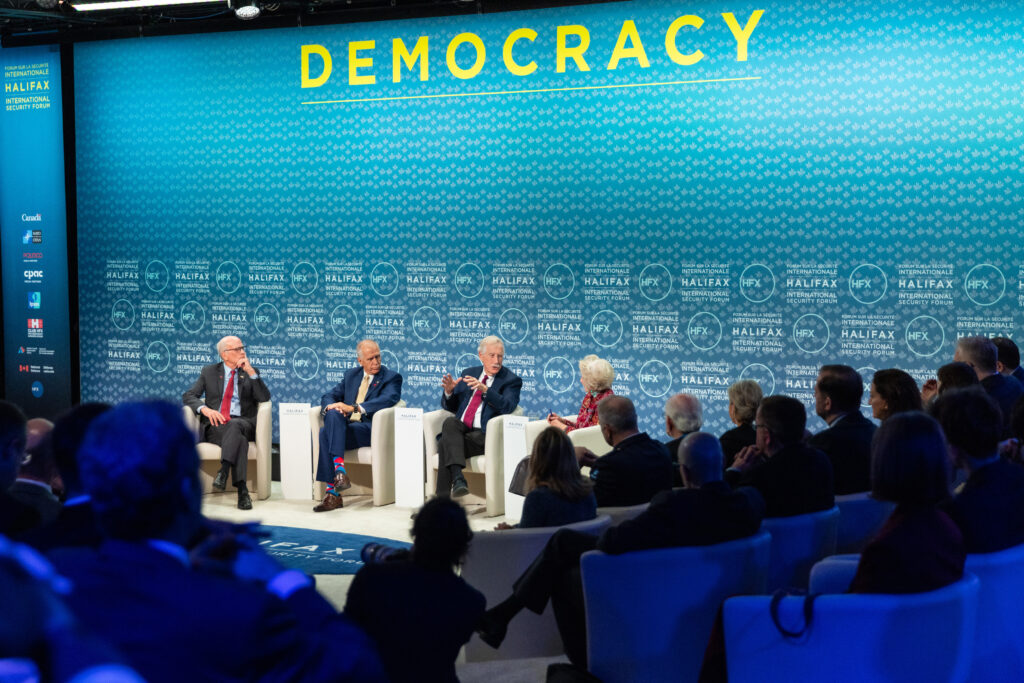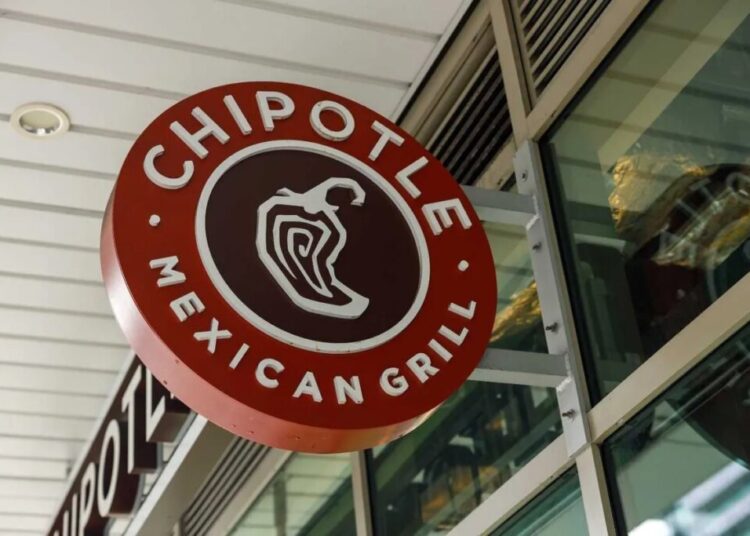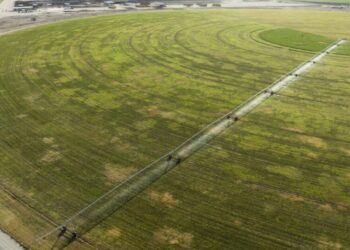HALIFAX, Nova Scotia — The Halifax International Security Forum is an annual gathering of political and military leaders and security experts from democratic countries, with a mission “to strengthen strategic cooperation among the world’s democracies.” That was not hard to do in 2009, when the conference was founded. It has become nearly impossible now that the world’s most powerful democracy has turned into a rogue nation led by a president who is more sympathetic to dictators than democrats.
U.S.-Canadian relations have been more strained than at any time since the 19th century after President Donald Trump imposed heavy tariffs on America’s northern neighbor. U.S.-European relations reached a new crisis point on Friday — the day the conference convened — when the Trump administration presented Ukraine with an ultimatum to accept a heavily pro-Russian “peace plan” or risk losing all U.S. support.
Various sessions had hopeful (and exceedingly alliterative) titles, such as “Democracies Don’t Despair,” “Democracies Defeat Dictators” and “Democracies Demand Decency.” But there was a notable absence at the core of the conference that undercut its premise. In years past, the U.S. delegation included senior administration officials, generals and admirals. This year, the Trump administration stayed home and forced the U.S. military to do the same. This isn’t an aberration: Also over the weekend, the administration boycotted the Group of 20 summit in South Africa. How does the Trump team expect to win any diplomatic victories when it’s not even on the field?
At Halifax, the only official U.S. presence was a bipartisan Senate delegation, and its Republican members had to confront a lot of uncomfortable criticism of the president. Sen. Kevin Cramer (R-North Dakota) was visibly fuming after watching a video of Trump’s litany of unhinged insults aimed at various people. Trying to defend him, Cramer insisted, “The Christians in Nigeria today are probably feeling pretty good about Donald Trump’s position.” (Trump threatened this month to go into Nigeria “guns-a-blazing” to protect Christians from violence.) A few minutes later came the first question from an African attendee in a flowing robe. “I’m a Christian from Nigeria,” he said. “I do not feel good about Donald Trump.”
Safe to say, almost no one in Halifax was feeling all that good about Trump. Even most of the Republican senators expressed dismay about the president’s efforts to bludgeon Ukraine into accepting a one-sided peace deal. For many attendees, the uncertainty over U.S. support for Ukraine merely confirmed what has already become obvious: The United States is no longer a reliable partner. The post-American world predicted by Fareed Zakaria in a 2008 book is finally dawning.
Despair and disappointment about the U.S. were particularly acute among the Canadian participants. They are still reeling from Trump’s tariffs and insults — including his bullying insistence that Canada should become the 51st state. He even referred to then-Prime Minister Justin Trudeau, whom he detested, as “governor.” Trump has a slightly more cordial relationship with Trudeau’s successor, Mark Carney, but U.S. tariffs on Canada still remain sky-high.
Many Canadian goods were already being tariffed at a 35 percent level when Trump added an extra 10 percent last month in retaliation for a commercial sponsored by the province of Ontario, truthfully pointing out that Ronald Reagan was an opponent of tariffs. By comparison, U.S. tariffs on the European Union, South Korea and Japan are only 15 percent. Canada is now at serious risk of recession.
Canadians have responded by imposing retaliatory tariffs on U.S. imports, boycotting U.S. goods and canceling visits to the U.S. The Carney government is trying to repair relations with China and India while debating whether to cancel an order for U.S. F-35 fighter aircraft and buy Swedish Gripens instead.
Odds are that, sooner or later, Trump and Carney will strike a deal to reduce tariffs, but the hurt feelings caused by the unprovoked and unnecessary U.S. trade war won’t soon dissipate. Canadians told me their country can no longer rely on the United States for security, as it has done in the past. European representatives expressed similar sentiments.
During Trump’s first term, many of these allies comforted themselves that an “America First” foreign policy was a fleeting aberration and that normality would soon be restored. Few think that anymore.
All of America’s allies are rapidly increasing their defense spending. Though Trump may claim, with some validity, that this is a result of his pressure, it’s also the result of fears about growing threats (primarily from China and Russia) combined with declining faith in U.S. security guarantees. If Trump were to cut all U.S. assistance to Ukraine, the transatlantic alliance might never recover. But even if he doesn’t do that, NATO can’t simply continue as before.
Europeans and Canadians are now talking about making their own security arrangements. What would a post-American NATO — or NATO 3.0 (NATO 2.0 was the post-Cold War alliance) — mean? It could ultimately lead countries such as Germany and Poland to acquire their own nuclear arsenals. It is likely to lead to greater levels of defense integration among some NATO members — notably the Nordic-Baltic Eight — than in the alliance as a whole. It is also likely to lead U.S. allies to buy weapons from each other, rather than from Washington. And it is already resulting in greater cooperation between NATO members and the like-minded democracies of Asia: Japan, South Korea, Taiwan and Australia.
A global league of democracies — an idealistic vision championed by the late Sen. John McCain, who regularly attended Halifax — is likely to remain impractical because democracies in the Global South (e.g., Brazil, South Africa and India) have a different outlook from their Western counterparts.
But there are like-minded democracies in Europe and Asia that should be able to band together against the increasingly interconnected threats from Russia and China. That could help realize the aspirations of democratic unity advertised at the Halifax conference — but undercut nearly daily by the Trump administration.
The post America has become a rogue nation. U.S. allies are looking elsewhere. appeared first on Washington Post.




